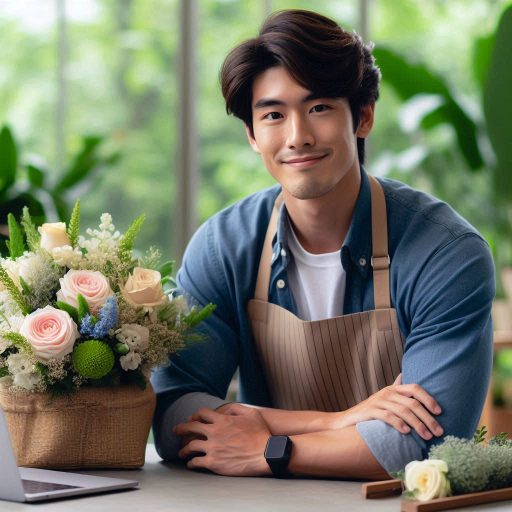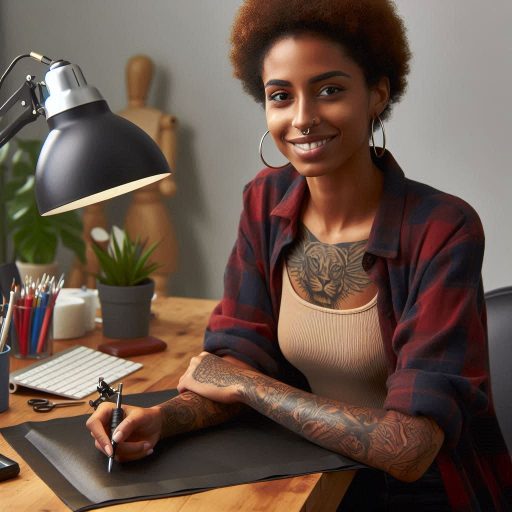Introduction
An event designer is someone who plans and executes various events, from weddings to corporate functions.
It’s essential for event designers to effectively market themselves to attract clients and stand out in a competitive industry.
An event designer is a creative professional who conceptualizes, designs, and coordinates all aspects of events to create memorable experiences for clients and guests.
Marketing is crucial for event designers to showcase their unique style, skills, and expertise to potential clients.
It helps build brand awareness, attract new clients, and distinguish themselves from competitors in the market.
In a saturated industry, effective marketing strategies can help event designers establish a strong online presence, attract a loyal client base, and ultimately grow their business.
Develop a strong brand identity
Developing a strong brand identity is essential for event designers looking to market themselves effectively.
Here are some key strategies to help you establish a standout brand in the industry:
Create a unique style that sets you apart from others
Define your design aesthetic and philosophy to distinguish yourself from competitors
Incorporate personal touches or signature elements that reflect your creativity and vision
Experiment with innovative concepts and materials to showcase your originality and talent
Use a consistent color palette and logo
Choose a color scheme that aligns with your brand’s personality and target audience
Design a memorable logo that conveys your brand message and values effectively
Ensure that your color palette and logo are cohesive across all marketing materials and platforms
Have a professional website and social media presence
Invest in a well-designed website that showcases your portfolio, services, and contact information clearly.
Utilize social media platforms such as Instagram, Facebook, and Pinterest to engage with potential clients and showcase your work.
Regularly update your online presence with fresh content, including photos, videos, and testimonials, to stay relevant and attract new clients.
By implementing these branding strategies, event designers can effectively market themselves and attract clients who appreciate their unique style and expertise.
Remember, consistency and authenticity are key when building a strong brand identity in the competitive world of event design.
Read: Exploring Different Tattoo Styles and Techniques
Transform Your Career Today
Unlock a personalized career strategy that drives real results. Get tailored advice and a roadmap designed just for you.
Start NowShowcase your work
As an event designer, one of the most effective ways to market yourself is by showcasing your work.
Building a comprehensive portfolio that demonstrates your range of skills and creativity is essential in attracting potential clients.
Highlight Your Creativity
Include a diverse selection of events you have designed, covering a range of styles and themes.
This will demonstrate your versatility and ability to adapt to different client preferences.
Make sure to keep the portfolio updated with your latest projects to show your continued growth and innovation.
Use High-Quality Images
The visual aspect of your portfolio is crucial in capturing the attention of potential clients.
Use high-quality images that capture the essence of your designs, highlighting your attention to detail and unique aesthetic.
Invest in professional photography to ensure your work is presented in the best possible light.
Share Testimonials
Client testimonials are powerful marketing tools that help build trust and credibility.
Include feedback from satisfied clients in your portfolio to showcase the positive experiences others have had working with you.
This social proof will reassure potential clients of your capabilities and reliability.
By effectively showcasing your work through a well-curated portfolio, you can attract the attention of clients and establish yourself as a reputable event designer in the industry.
Remember to regularly update your portfolio with new projects and client testimonials to keep it fresh and engaging.
Read: Tattoo Apprenticeships: Finding the Right Mentor

Network within the industry
Networking is a powerful way to market yourself as an event designer.
Building connections with industry professionals can lead to opportunities and collaborations.
Attend Industry Events, Conferences, and Workshops
Regularly attending industry events expands your knowledge and visibility.
These gatherings offer opportunities to meet potential clients and learn new trends.
Conferences and workshops connect you with event planners, vendors, and suppliers.
By attending, you stay informed and build relationships that can lead to collaborations.
Transform Your Career Today
Unlock a personalized career strategy that drives real results. Get tailored advice and a roadmap designed just for you.
Start NowThese connections increase your credibility and demonstrate your dedication to the profession.
Collaborate with Other Event Professionals, Such as Caterers, Florists, and Photographers
Working with other event professionals opens doors for referrals and partnerships.
Collaborating with caterers, florists, and photographers enhances your reputation.
When you build strong relationships with vendors, you create opportunities for future projects.
Referrals from trusted partners can generate new leads for your business.
In turn, you may recommend their services to your clients, benefiting both parties.
Collaboration promotes teamwork, creativity, and higher-quality events.
Join Professional Organizations and Online Forums to Connect with Potential Clients
Being part of professional organizations boosts your credibility and expands your network.
Joining event design associations gives you access to exclusive resources and networking events.
Online forums allow you to connect with peers and potential clients.
These platforms offer spaces for sharing ideas, learning industry trends, and seeking advice.
Participating actively in discussions helps establish your expertise and attract new business.
By strategically networking in the event design industry, you can market yourself effectively and grow your business.
Read: Tattoo Art: From Concept to Completion Process
Utilize social media effectively
Use platforms like Instagram, Pinterest, and Facebook to showcase your work
When it comes to marketing yourself as an event designer, one of the most effective tools at your disposal is social media.
By utilizing platforms such as Instagram, Pinterest, and Facebook, you can showcase your work to a wide audience and attract potential clients.
Engage with followers by posting regularly and responding to comments
Posting photos and videos of your designs on these platforms allows you to visually demonstrate your creativity and skills.
Make sure that your posts are high-quality and showcase the range of events you can design for – whether it’s weddings, corporate events, or private parties.
In addition to posting regularly, it’s important to engage with your followers by responding to comments and messages.
Building a strong relationship with your audience can help foster trust and loyalty, making them more likely to choose you as their event designer.
Transform Your Career Today
Unlock a personalized career strategy that drives real results. Get tailored advice and a roadmap designed just for you.
Start NowUse hashtags to reach a larger audience and attract potential clients
Another key aspect of using social media effectively is the use of hashtags.
By including relevant hashtags in your posts, you can reach a larger audience beyond your current followers.
This can help attract potential clients who are searching for event designers or inspiration for their next event.
Overall, social media can be a powerful tool for marketing yourself as an event designer.
By showcasing your work, engaging with followers, and using hashtags strategically, you can attract new clients and grow your business effectively.
Read: Freelance vs. In-House Event Design Jobs
Discover More: Top Skills Every Industrial Designer Should Master
Offer value through content marketing
To market yourself as an event designer, offering value through content marketing is key.
By sharing valuable insights, you can build trust with potential clients.
Share valuable tips, inspiration, and industry insights on your blog or social media
Regularly share design tips, behind-the-scenes event details, and trending industry insights.
This demonstrates your expertise while keeping your audience engaged.
Social media platforms like Instagram or Pinterest are great for showcasing your work visually, while blog posts allow you to dive deeper into event planning tips and tricks.
Create free resources such as checklists or guides for potential clients
Free resources like event planning checklists or style guides are valuable tools for potential clients.
These tools help them with the planning process while subtly positioning you as a go-to expert.
When clients find your resources helpful, they‘re more likely to trust you with their event needs.
Position yourself as an expert in event design to attract clients looking for your expertise
Positioning yourself as an expert helps you stand out in the crowded event design space.
Share your knowledge and experience through webinars, interviews, or even collaborating with influencers in the industry.
Clients will be more likely to hire you if they see you as a leading authority in event design.
By consistently sharing valuable content, offering free resources, and positioning yourself as an expert, you’ll attract more clients who trust your expertise.
This content marketing strategy helps to build relationships with potential clients, ultimately growing your event design business.
Transform Your Career Today
Unlock a personalized career strategy that drives real results. Get tailored advice and a roadmap designed just for you.
Start NowConclusion
Marketing yourself as an event designer requires a strategic approach.
You need to focus on creating a strong online presence through social media, a professional website, and networking events.
Utilize visually appealing content and showcase your unique style to attract potential clients.
It is crucial for event designers to implement the marketing strategies discussed in this blog post.
By consistently promoting your work and engaging with your audience, you can increase your visibility and attract more clients.
Remember, the key to success is to continuously evolve and adapt your marketing efforts to stay competitive in the industry.
Stay updated on current trends, seek feedback from clients, and be open to trying new techniques to enhance your brand and reach a wider audience.
With dedication and persistence, you can establish yourself as a successful event designer in the market.




